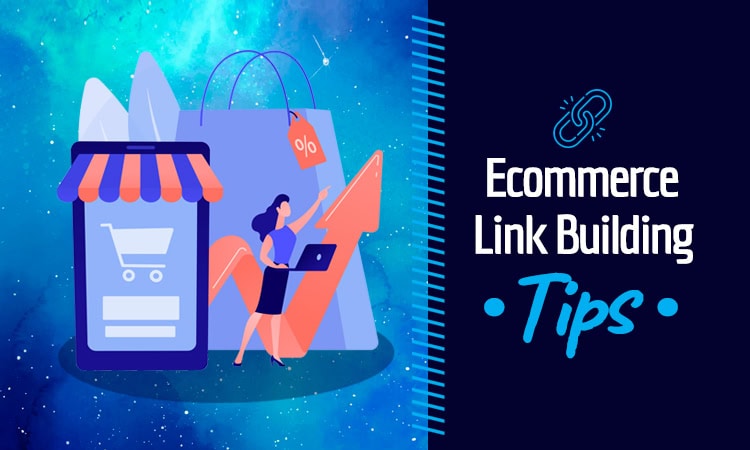Ecommerce Link Building Services For Scaled Online Retail
Most ecommerce link building fails before it starts because it focuses on tactics instead of structure.
How well an ecommerce site organizes authority, routes equity through category page clusters, and supports product pages with signals that search engines trust is directly proportionate to the value they get from building backlinks.
The Reality of Retail SEO
High authority websites link to brands that own their category, not SKUs.
That is the gap EDLS (Entity-Driven Link Building System) fills. Our system gives ecommerce businesses a proven way to earn high-quality links, strengthen relevance, and build an authority graph that aligns with how Google evaluates commercial intent.
This turns link building into a revenue engine, not a checkbox task. By directing every placement toward the keywords and pages that influence actual sales, we help brands dominate search engine rankings that have been out of reach for years.
But Does It Work? Real Enterprise Results:
Here is a snapshot of an enterprise link-building campaign that we delivered, using our methodology.
| Metric | Outcome |
|---|---|
| New Referring Domains Earned | 412 authoritative links from ecommerce, SaaS, and industry publishers |
| Authority Reclaimed | 180+ lost links recovered, restoring equity from legacy migrations |
| Category Visibility Lift | 68 priority commercial keywords improved, several tripled impressions |
| High-Intent Organic Traffic | 148% growth to revenue-driving URLs across core product and feature pages |
| Traffic Value Impact | Traffic value increased by an estimated 210–260%, reflecting stronger rankings for commercial intent queries |
| Category Architecture Upgrade | 11 hubs rebuilt to concentrate and distribute authority across thousands of SKUs |
| EDLS Advantage | Authority engineered through hubs and assets, then injected into products via structured internal linking |
Why Generic Link Building Fails Ecommerce Sites
Most link building strategies were created for blogs, not ecommerce websites. They ignore the reality that an ecommerce site is a structured system, not a collection of isolated pages. When agencies focus solely on outreach volume or lists of “tactics,” they miss the architecture that determines whether authority moves through the catalog or dies on the page it lands on.
Generic link building also fails when product depth scales. Thousands of URLs, faceted navigation, and variant structures dilute equity unless the site is engineered to concentrate and distribute it correctly. Without this structure, even high-quality links fail to influence rankings for competitive terms.
Another issue is misalignment with publisher behavior. Relevant websites have no incentive to link directly to product pages. They link to resources that help their audience. This gap is why most ecommerce link-building efforts stall out. Agencies chase placements that don’t matter, while competitors with stronger category hubs accrue the authority that shapes the market.
The Product Page Paradox In Ecommerce Link Building
Site owners often try to point backlinks directly at SKUs. That rarely works. Product pages rarely attract natural links because they lack informational depth and offer no editorial value to relevant websites. Most ecommerce link building strategies break down at this point, because publishers avoid linking to overtly commercial URLs. Without an architecture that solves the product page problem, search rankings stagnate and potential customers never reach the pages that convert.
Why Direct Links To Product Pages Limit Growth
Links pointing to commercial URLs look unnatural at scale. Publishers reject the request, and search engines discount questionable patterns. The solution is not to push harder. The solution is to change where authority enters the site.
Our Hub and Spoke Ecommerce Link Architecture
EDLS solves the problem by shifting focus from forcing links to SKUs to earning link worthy content for hub-level assets, category collections, and buying resources. Once authority flows into the right locations, internal links and structured navigation push that strength into product pages. This gives ecommerce sites a safer, more scalable way to build backlinks and influence how search engines evaluate brand authority.
The EDLS Methodology: A Structured System for Ecommerce Authority
Phase 1: Architecture and Technical Foundation
Before building any links, we strengthen the vessel. Ecommerce websites rely on structure, not guesswork. We evaluate navigational depth, crawl paths, category architecture, and other elements that determine how authority flows.
We verify that faceted navigation and filtering do not dilute equity, confirm that canonical strategy consolidates authority to the correct versions of your product pages, and ensure your internal linking structure supports scalable growth. This foundation shows us where external links will have the highest impact on your site’s SEO performance.
Phase 2: Asset Creation (The Magnet)
High authority sites link to resources, not SKUs. EDLS creates linkable assets that publishers want to reference. This includes calculators, buying frameworks, industry data, comparison content, and blog posts that function as valuable resource pages.
When these assets match real search demand, relevant websites treat your brand as the credible source. This earns quality links naturally and brings targeted traffic from referring domains.
Phase 3: Strategic Acquisition (The Bridge)
Once the assets are live, we build the authority bridge. EDLS strengthens your category page hubs, uses digital PR to secure high quality links from reputable websites, and reclaims lost links through link reclamation and unlinked brand mention outreach.
We also use broken link building to replace outdated URLs across relevant sites with stronger resources. Each acquisition campaign reinforces your authority where it matters most.
Phase 4: Equity Distribution (The Injection)
Authority must reach the pages that generate revenue. EDLS uses structured internal link building to direct equity from hubs and assets into high-priority product pages. Breadcrumb systems, contextual links, and curated collections all guide signals into commercial paths.
This flow solves the product page problem and gives your ecommerce site a scalable way to rank for competitive, high-intent keywords.
The 6 High-Performance Link Assets We Build
| Asset Type | The Mechanism (Why It Earns Links) | Ideal For… |
| 1. Interactive Calculators | Utility goes viral. Static text rarely gets shared, but useful tools do. We build custom ROI calculators or project estimators. | Forums & Resource Pages |
| 2. Proprietary Data Studies | Journalists need data. We analyze sales data or public surveys to create “State of the Industry” reports. | Tier-1 News & Journals |
| 3. The “Master” Buying Guide | The “Wiki” Strategy. We build massive, definitive guides that cover every technical angle of a product class. | Enthusiasts & Educators |
| 4. Visual Asset Libraries | For visual niches. We create high-quality infographics and “Look Books” that bloggers use to support their content. | Fashion & Decor Blogs |
| 5. Comparison Matrices | Buyers love clarity. Unbiased tables (Brand A vs. Brand B) that rank for high-intent comparison keywords. | Review Sites & Forums |
| 6. Expert Roundups | The “Ego Bait” Strategy. We interview influencers in your field. They promote the feature to their own audience. | Social Shares & Seed Links |
Safe vs Risky Link Building Techniques for Ecommerce Sites
EDLS avoids paid links on random blogs and focuses on credible, high-quality sites that strengthen long-term authority. When relevant publishers and reputable websites link to well-built resources instead of transactional URLs, ecommerce brands earn quality backlinks without exposing themselves to algorithmic or manual penalties. Our approach is engineered to build durable trust, not short-term movement.
Tailored Strategies for Your Vertical
A strategy that works for fast fashion will fail for industrial equipment. EDLS adapts acquisition channels, publisher targets, and link sources based on where your audience consumes information and how your category is represented in the Knowledge Graph.
Fashion and Lifestyle
We prioritize visual PR, influencer-driven features, and curated lists. Fashion blogs, trend publications, and creator-owned blogs drive qualified traffic and authoritative signals that elevate your brand in style-driven search spaces.
B2B and Industrial
We target distributors, trade associations, manufacturer partner pages, and industry journals. These citations establish your brand as a verified supplier and carry significant topical weight that consumer blogs cannot match.
Health, Wellness, and Supplements (YMYL)
We emphasize medically reviewed citations, clinic partnerships, and accredited wellness experts. In regulated niches, trust citations determine whether your pages surface at all. EDLS ensures your signals align with YMYL standards.
Link Building Strategies for Your Platform
A link building campaign that ignores the constraints of your CMS will fail. EDLS adjusts tactics based on how your platform handles URLs, facets, variants, and internal navigation.
Shopify and Shopify Plus
Shopify’s rigid URL structure can generate duplicate content and dilute equity. We implement advanced canonical strategies, optimize tag pages, and ensure authority built to collections flows cleanly into high-value products.
Magento (Adobe Commerce)
Magento sites often struggle with faceted navigation bloat. EDLS audits parameters, crawl budget, and configurable product setups to consolidate authority and prevent power from being scattered across thousands of thin URLs.
WooCommerce and BigCommerce
Flexible platforms often suffer from plugin bloat and slow performance. We coordinate with your development team to ensure asset pages remain lightweight and fast, maximizing their ability to attract links, rank, and convert.
How EDLS Improves Your Site’s SEO and Organic Traffic
When architecture, asset creation, acquisition, and equity distribution work in sync, rankings compound. Our Entity-Driven Link Building System strengthens your authority graph, increases domain authority, and diversifies the profile of websites linking to your brand. The result is more traffic, higher positions in Google search, stronger trust signals, and consistent revenue lift across the entire catalog, not just a few URLs.
Ecommerce Link Building FAQ
Should we build links directly to product pages?
Direct links are appropriate only for evergreen, high-value products. For most catalogs, EDLS uses the Hub and Spoke model, earning authority at the category and asset level and routing equity into product pages through structured internal links.
How do you handle large catalogs with thousands of SKUs?
We prioritize high-margin categories and top-selling variants. By strengthening parent pages and optimizing internal links, EDLS lifts entire product clusters without requiring backlinks for every SKU.
Do you work with Shopify, Magento, or custom platforms?
Yes. Our Phase 1 technical audit is platform-agnostic. We evaluate faceted navigation, the canonical strategy, crawl depth, and indexation rules to ensure your site can efficiently receive and distribute authority.
What is the difference between Digital PR and standard link building?
Standard link building targets niche-relevant publishers. Digital PR earns citations from high-authority outlets and analysts. Both reinforce your authority graph, but Digital PR accelerates visibility and builds signals competitors cannot easily replicate.
How long does it take to see revenue impact?
Technical improvements often create early gains, while authority building compounds between months four and eight. EDLS tracks leading indicators such as keyword lift and referring domain quality to validate movement and forecast future revenue.
Ready to Build a Revenue Engine?
Stop paying for links that fail. Start building an authority architecture that compounds value. Contact us today to review your goals and build the right strategy for your ecommerce brand.













